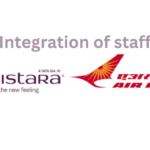With the fear of recession having gripped organisations worldwide, the focus on hiring freezes has increased. In fact, 33 per cent CEOs in India and 39 per cent CEOs globally have already imposed a hiring freeze. About 47 per cent CEOs in India compared to 46 per cent worldwide are thinking of reducing their workforce over the next six months.
These figures have been revealed in the KPMG 2022 India CEO Outlook report, which also says that in the longer term, a significant 79 per cent CEOs in India and globally expect to see the workforce expanding over the next three years.
Chief executive officers around the world, across sectors continue to invest in their present employees. In fact, about 34 per cent CEOs in India and 50 per cent CEOs globally are looking at ways to improve and enhance the productivity of their workforces.
How do the CEOs plan to deal with recession, if it hits?
About 75 per cent CEOs worldwide and about 70 per cent in India have either imposed a hiring freeze or plan to do so in the next six months. A whopping 80 per cent CEOs around the world and 75 per cent in India have either seriously thought of reducing headcount or will downsize their workforce in the next six months.
Worldwide, 40 per cent CEOs have taken steps to pause or reduce digital transformation strategies to prepare for an anticipated recession. About 37 per cent plan to do so in the next six months, but 22 per cent have no action planned yet. In India, 28 per cent have taken action, while 50 per cent are planning to take action in the next six months and 22 per cent have yet to plan what to do .
By 2025, two per cent CEOs in India feel that the workforces will be working 100 per cent remotely. About 34 per cent feel the hybrid model will be embraced over the next three years, while 65 per cent believe it will be back to in-office work.
There is awareness that diverse teams perform better, but this is limited to environments of psychological safety alone says the report. About 62 per cent CEOs in the country feel they are responsible for driving greater social mobility in their organisations. That means, they are accountable for how the organisation is structured and the kind of people invited to the organisation.
Value our content... contribute towards our growth. Even a small contribution a month would be of great help for us.
Since eight years, we have been serving the industry through daily news and stories. Our content is free for all and we plan to keep it that way.
Support HRKatha. Pay Here (All it takes is a minute)




































